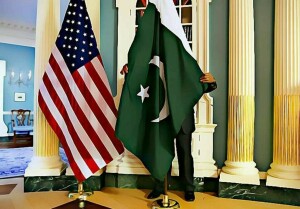EDITORIAL: The World Bank in a recent report urged Pakistan to establish a permanent “Debt and risk management committee” to mitigate growing fiscal risks and address the fragmentation in debt management. Two observations are critical.
First, growing fiscal risks relate to the widening budget deficit, unsustainable for the past six to seven years at over 7 percent per annum, necessitates implementation of tax reforms that include shifting towards direct taxes to indirect taxes.
Needless to add, the major source of direct tax revenue is from withholding taxes imposed in the sales tax indirect mode, an indirect tax (whose incidence on the poor is greater than on the rich, currently estimated at between 75 to 80 percent of direct tax collection), that is simply no longer affordable for the general public, given the fact that 41 percent poverty levels prevailing in the country today.
The incumbent government has pledged reforms to the International Monetary Fund (IMF) under the ongoing programme; however, even though the government has proactively issued notices to non-filers, as did previous administrations, yet to-date the burden has yet to be shifted from indirect to direct taxes. The policy decision to tax the traders announced last fiscal year has been amended drastically to accommodate traders’ demands, which again implies that implementation has yet to begin.
And second, fragmentation of debt management refers to the insistence of the IMF in the past three to four programmes for the country to adopt a single treasury account that would facilitate debt management. In 2010 an IMF working paper titled Treasury Single Account: Concept, Design and Implementation issued by Isreal Fainboim and Sailendra Pattanayak argued that “The primary objective of a TSA is to ensure effective aggregate control over government cash balances.
The consolidation of cash resources through a TSA arrangement is meant to optimize government cash management. It avoids borrowing and paying additional interest charges to finance the expenditures of some agencies while other agencies keep idle balances in their bank accounts. Effective aggregate control of cash is also a key element in monetary and budget management.
Other objectives of a TSA include: reliable and efficient budget execution by minimising transaction costs; monitoring (and thereby controlling the delay in) the remittance of government revenues (both tax and non-tax) by the collecting banks; effective reconciliation between banking and accounting data; efficient control and monitoring of funds allocated to various government agencies; and facilitating better coordination with the monetary policy implementation.”
While the Federal Finance Minister Muhammad Aurangzeb recently stated that only around 15 to 20 percent work is left to meet this objective yet perhaps one attribute of a TSA maybe a source of some concern, notably, as per the Working Paper, “it is a unified arrangement, which enhances the fungibility of the government’s cash resources, and implies that no other government agency should be allowed to operate bank accounts without the oversight of the treasury.”
Be that as it may, at the risk of being facetious one may refer Bank staff’s recommendation to form a debt and risk management committee to the oft-repeated phrase a camel is a horse designed by a committee. What is required is political support, as noted in the Working Paper given that “establishing a TSA can require hard decisions, such as closing the existing bank accounts of budget organisations (outside treasury control), that can provoke powerful opposition. For success, a TSA reform must be explicitly and strongly supported by the highest levels of government. Cabinet decisions to initiate and reinforce the reforms are helpful.”
Copyright Business Recorder, 2025




















Comments
Comments are closed.